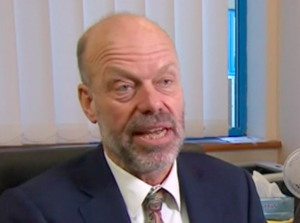Services funded by public money should be open to all, without alienating anyone.
The recent drive to contract out public services to faith groups risks undermining equal access.
Help us keep public services free from discrimination and evangelism.
The government is increasingly pushing for more publicly-funded services to be provided by religious organisations.
Many faith-based groups have carried out social service without imposing their beliefs. But religious groups taking over public service provision raises concerns regarding proselytising and discrimination.
65% of people have no confidence in church groups running crucial social provisions such as healthcare with only 2% of people expressing a lot of confidence.
Any organisations involved in delivering public services should be bound by equality law and restrictions on proselytisation.
Those advocating for faith organisations to take over more public services risk undermining these restrictions, which exist to protect both the public and third sector.
"We have concerns that some religious groups that seek to take over public services, particularly at local level, could pursue policies and practices that result in increased discrimination against marginalised groups, particularly in service provision and the employment of staff. Non-religious people and those not seen to confirm to the dominant ethos of a religious body, such as being in an unmarried relationship or divorced and being lesbian, gay, bisexual or transgendered, could find themselves subject to discrimination."
Unitarian Church (Submission to the Parliamentary Public Administration Select Committee about the Big Society agenda)
There are also concerns about faith-based mental health and pastoral care in public institutions, including chaplaincy programmes in the NHS and the armed forces. Where such services are funded by the state, they should not be organised around religion or belief.
Religious commentators are often keen to document the contribution of religious organisations to the third sector and social activism. But they fail to demonstrate why it should be the state's role to build this capacity or why local authorities shouldn't have legitimate concerns about religious groups running services.
Take Action!
1. Write to your MP
Ask your MP to protect secular public services.
2. Share your story
Tell us why you support this campaign, and how you are personally affected by the issue. You can also let us know if you would like assistance with a particular issue.
3. Join the National Secular Society
Become a member of the National Secular Society today! Together, we can separate religion and state for greater freedom and fairness.
Latest updates
Government funds charity bringing “biblical truth” to sex workers
Posted: Mon, 14 Nov 2022 12:06
The National Secular Society has criticised the government for funding a faith group which aims to bring "biblical truth" to trafficked women.
The government has awarded £7,747 to All Souls Serve the City, a charity which exists to "advance the Christian faith" in London, for its 'Tamar' project.
According to the charity's website, Tamar is "a team of volunteer women who aim to restore hope to people exploited in the sex industry". This includes offering "prayer for individual need".
The funding was awarded as part of the government's £1.3 million 'faith new deal pilot fund' for faith-based organisations that provide community services. Nonreligious groups were unable to apply.
Sixteen groups, mostly Christian, were awarded funding under the scheme.
Tamar: Being a Christian "essential" but not experience in supporting women in the sex industry
According to a support worker job description on the charity's site, it is "essential" to be an evangelical Christian for the role, for which key tasks include "conducting one to one Bible studies".
In contrast, experience with supporting women involved in the sex industry and safeguarding reporting is not essential.
The job description says Tamar "seek to bring gospel hope and biblical truth to those who find themselves homeless, women involved in the sex industry including those who are trafficked and exploited".
According to a 2020 report from the Universities of Sheffield and Leeds, faith groups should avoid proselytising when working with victims of modern slavery. The report found some survivors who had sought help from religious organisations had experienced pressure to attend religious services because they felt it was a requirement of the support.
The Department for Levelling Up, Housing and Communities said it had "undertaken an equality analysis" on the faith new deal pilot scheme to ensure services delivered by faith groups with Government funding "do not proselytise or promote religion".
Women's rights campaigners "appalled"
Selma Taha, Executive Director of London-based women's rights group Southall Black Sisters, said: "We are appalled that the government should have set aside funding specifically for religious groups to provide such sensitive services when many organisations, with years of expertise and experience in the Violence Against Women and Girls Sector, are facing funding crises.
"Evangelical proselytising is the more egregious end of a spectrum in which religious-based services, in any case, are not an appropriate solution for supporting women who may be judged for not conforming to gender stereotypes. "
Megan Manson, head of campaigns at the National Secular Society, said: "Helping vulnerable women who are homeless or exploited by the sex industry is a noble cause, but there are serious concerns where the support offered comes with religious strings attached.
"While Tamar may have the best intentions, the requirement for workers to be evangelical Christians and for them to hold Bible study sessions suggests this group may be prioritising a religious agenda.
"This demonstrates why the government providing exclusive grants that only faith groups can access is wrong. Not only does this discriminate against and marginalise the already struggling secular charities – it also opens the door to religious groups using the opportunity as a mission field.
"The government must discontinue discriminatory grant programmes and ensure any religious groups that are given public funds do not use that money to proselytise to vulnerable people or discriminate against those who don't share their faith."
MPs push for more faith-based public services
In a report launched in September, the all-party parliamentary group (APPG) on faith and society says the public should expect faith groups to be "increasingly involved in the leadership and management of 'secular' referrals and key worker care in the community", and to receive "increasingly significant amounts of public funding to do this".
Some projects have already received "hundreds of thousands of pounds from public funds", according to the report.
The APPG on faith and society, which is chaired by evangelical Christian and Labour MP Stephen Timms, aims "to highlight the contribution to society by faith-based organisations".
2016 polling by the Oasis Foundation found 65% of people have no confidence in church groups running "crucial social provisions such as healthcare" with only 2% expressing a lot of confidence.
Update 02/01/23: The Department for Levelling Up, Housing & Communities has confirmed to the NSS that All Souls Serve the City do "offer prayer and Bible studies as part of their services", but they say "they offer this on a voluntary participation basis and only when they are first asked by a service user."
Image: Madison from Pixabay
Proselytising doctor must attend further training
Posted: Mon, 26 Sep 2022 17:57
A Christian GP who received complaints over evangelising to patients is to attend a 'professional boundaries course' as part of a settlement with NHS England.
Dr Richard Scott had previously refused to attend the additional training which NHS England said was necessary for him to remain on the 'Performers List for England' – a register for health professionals offering primary care. A planned tribunal was called off following the last-minute settlement.
NHS England's decision arose following concerns raised by the National Secular Society.
An acquaintance of a "highly vulnerable" patient contacted the NSS in 2019 after Dr Scott made her feel "discomfort at the use of prayer." In an interview with BBC Radio 4 earlier that year, Dr Scott said he introduces faith into consultations with people with depression or anxiety as "most people are desperate, they'll at least listen." He also described how he had recently "converted" a patient to Christianity.
By his own admission, Dr Scott has received "about 10" complaints regarding imposing his religious views on patients.
Minutes from Dr Scott's surgery, Bethesda Medical Centre in Margate, also revealed "too many complaints are received from patients" about having religion "pushed upon them" when they attend the surgery.
This followed a 2012 General Medical Council (GMC) investigation which found that Dr Scott had told a patient "his own religion could not offer him any protection" and he would suffer "for the rest of his life" if he did not "turn towards Jesus".
The GMC found Dr Scott had "caused the patient distress through insensitive expression" of his religious beliefs" and that his actions constituted a "significant departure from Good Medical Practice". In a December 2019 BBC Radio Kent interview, Dr Scott said he had not changed his approach since 2012.
In response to the concerns raised by the National Secular Society, a 2020 GMC investigation expressed concerns that Dr Scott may be "exploiting the patient's vulnerability and attempting to impose his beliefs and values upon them". It also noted "the concern that Dr Scott lacks insight following the warning issued to him in 2012".
NSS CEO: Patients "quite rightly" expect healthcare without religious imposition
NSS Chief Executive Stephen Evans said: "The multiple complaints regarding Dr Scott's conduct over many years suggest he lacks sensitivity and fails to work within the ethical standards required of a doctor.
"Despite previous warnings Dr Scott appears blind to the potentially damaging effect of his actions. We are therefore pleased that NHS England has taken steps to remedy that.
"NHS patients quite rightly expect to receive healthcare without having someone else's religious beliefs imposed on them. Evangelism that targets people who are ill or vulnerable is exploitative and patients should be protected from it."




